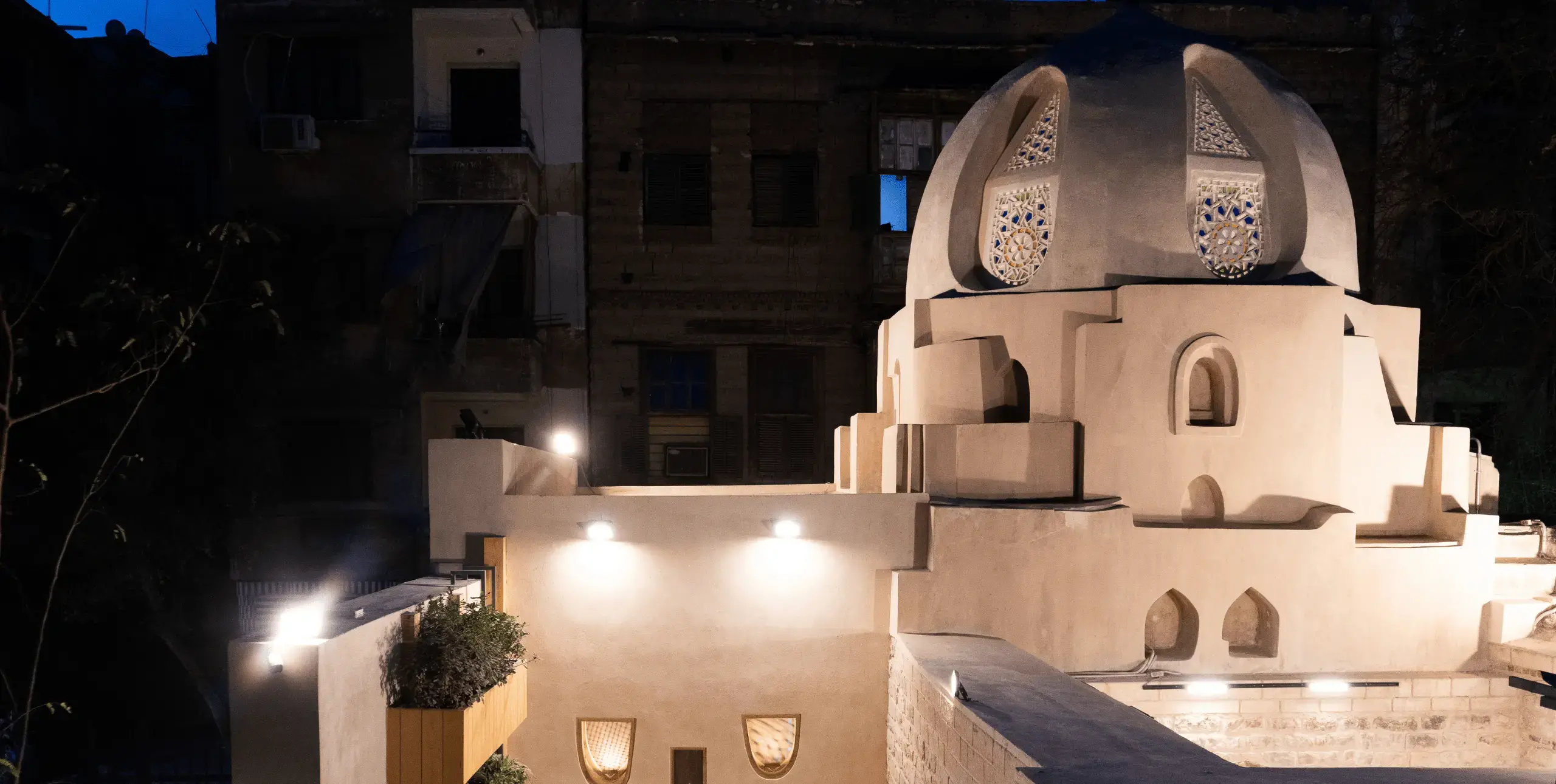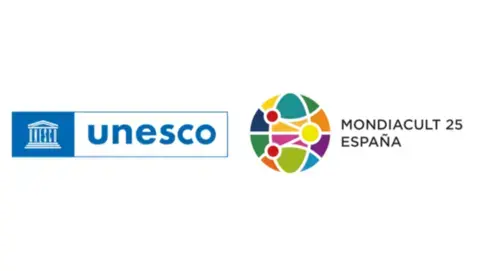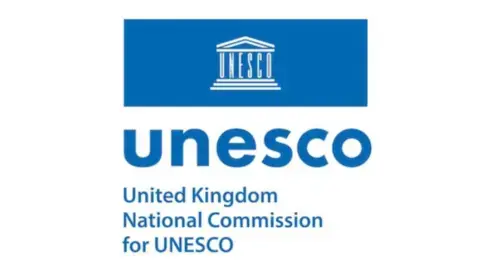MONDIACULT, UNESCO’s World Conference on Cultural Policies and Sustainable Development, is the world’s biggest cultural policy conference, bringing together thousands of participants to set the global agenda for culture in the years ahead.
Hosted by the Government of Spain, the 2025 edition runs from 29 September – 1 October and focuses on six themes around the challenges and opportunities for the future of culture: cultural rights; digital technologies in the culture sector; culture and education; economy of culture; culture and climate action; and culture, heritage and crisis.
We are working with partners on two events during MONDIACULT which explore and strengthen understanding on the vital role of the arts, culture and heritage in enabling and driving sustainable development.
On this page you'll find information about the three events we're presenting in the context of the conference with the support of the British Embassy in Madrid. The events taking place at the CCIB are open to those with accreditation to attend MONDIACULT 2025.
Storytelling for Resilience: Arts, Heritage and Voice in Times of Conflict
Storytelling for Resilience: Arts, Heritage and Voice in Times of Conflict
Sunday 28 September, 12pm–3pm | Institut Français, Carrer de Moià 08006 Barcelona Spain
This event is open to the public. This event is free but ticketed – register early to avoid disappointment.
The discussion will be held in English.
In partnership with Goethe-Institut and Ukrainian Institute, we invite you to join our dialogue on the impact of cultural approaches to supporting resilience in times of conflict. Through sharing new research findings and showcasing storytelling and heritage projects, this event will explore how supporting storytelling – from monuments to music, from art to journalism, from films to poetry – can empower the voice, skills and agency of creatives and marginalised people affected by conflict. It will interrogate how we can overcome the significant gaps between cultural, development and security policy frameworks and programmes aiming to support the resilience conflict-affected communities, and provide recommendations for policymakers and practitioners working in the field.
Panellists
Lina Kirjazovaite – co-founder, Culture Policy Room
A researcher and practitioner working at the intersection of culture, peace and security. She is co-founder of the Culture Policy Room and currently co-leads independent research for the British Council on arts, peacebuilding, and fragile contexts across global contexts. Her work focuses on the role of culture in times of conflict, exploring how cultural approaches can foster resilience, legitimacy, and inform local and international policy responses and programming.
Yasmin Merei – Women for Common Spaces
Yasmin Merei worked in printed and digital media and specialised in feminist journalism. She is managing the Women for Common Spaces Organization in Berlin, which is creating a female memory on seeking refuge and building the capacities of young women who are politically and culturally active in the Syrian diaspora. She is currently working on investigation stories related to transitional justice in Syria.
Volodymyr Sheiko - Director General, Ukrainian Institute
A specialist in culture management, marketing and communications. For 11 years, he held senior positions in British Council Ukraine, organising numerous cultural projects and events in the UK and 15 European countries. He is a graduate of the Institute of International Relations of the Taras Shevchenko National University of Kyiv.
Stephen Stenning – Director Culture in Action, British Council (Chair)
Stephen Stenning OBE is British Council’s Director Culture in Action, a cross disciplinary portfolio that straddles work across the network in heritage, creative economy and cultural responses to global challenges of inclusion and sustainability. He has championed the value of Arts and Culture in Sustainable Development and led the set-up of the UK’s £60m Cultural Protection Fund established in 2016 which is now part of a growing heritage portfolio for the British Council.
Inclusive and Sustainable Futures: Cultural Heritage, Climate Action and Digital Technology
Wednesday 1 October 2025, 8.15am – 9.15am
Barcelona International Convention Center (CCIB), Room 131–132
Organised by the British Council and the United Kingdom National Commission for UNESCO.
The discussion will be held in English. A recording with Spanish subtitles will be made available after MONDIACULT.
What is the role of cultural heritage and digital technology in shaping an inclusive and sustainable future?
Urgent international cooperation is needed to tackle the climate emergency and its impact on cultural heritage. There also remains significant untapped potential to strengthen community resilience and support climate solutions through cultural heritage approaches, harnessing traditional knowledge to promote stewardship and community ownership. Advancements in digital technology provide further opportunities for innovation and imagination.
Despite overlaps across climate responses, cultural heritage, and digital technology, discourses surrounding the UN’s 2030 agenda rarely bring these three sectors together.
This session addresses this gap. Building on the UN’s Pact for the Future and Global Digital Compact, experts will trace the Mondiacult journey from Mexico to Spain and launch two landmark British Council research reports: the Atlas for Cultural Policies in Ibero-America: Climate, Culture, and Heritage and Digital Cultural Heritage: Imagination, innovation and opportunity.
Panellists
Marcele Oliveira – Presidency Youth Climate Champion for COP30
Marcele Oliveira, 26, is the Presidency Youth Climate Champion for COP30, a cultural producer, communicator, and climate activist. She is the Master of Ceremonies at Circo Voador and the Executive Director of Perifalab, as well as a co-founder of the Coalition "O Clima é de Mudança" and a Youth Climate Negotiator for the Rio de Janeiro Secretariat of Environment and Climate. Her research focuses on the intersection between cultural practices and combating the consequences of climate change in marginalized communities, with an emphasis on adaptation and climate education. Her work is featured in the "Cultura e Clima" study by C de Cultura and Outra Onda Conteúdo.
Maria Garcia Holley – Regional Arts Director, Americas, British Council
With over 14 years of experience, María García Holley leads diverse cultural and development initiatives across Argentina, Brazil, Colombia, Cuba, the Caribbean, Mexico, Peru, and Venezuela. In this role, María leads cross-regional collaborations to advance the cultural sector in LATAC and advocates for inclusive policies that enhance access to cultural and creative opportunities. María's expertise has been recognized with distinctions as the first Mexican fellow in the Clore Leadership Programme, a Chevening Scholar, and a member of the Inter-American Development Bank’s Creative Economy expert group, where she analysed and foresaw the pandemic's impacts on the cultural sector.
Prof. Mererid Hopwood – Professor of Welsh and Celtic Studies, poet and Archdderwydd Cymru (Archdruid of Wales)
Mererid Hopwood is an award-winning poet, lyricist, translator and Professor of Welsh and Celtic Studies at University of Aberystwyth. She is Archdderwydd Cymru (the Archdruid of Wales) and Secretary of Academi Heddwch Cymru (Wales’s national peace institute). Mererid is also Patron of Gwrando (Listening) Programme, Wales’s programme as part of the UN Decade of Indigenous Languages.
Mutanu Kyany’a – Head of Programs and Outreach, African Digital Heritage
Mutanu Kyany'a is a digital heritage practitioner who develops community-led approaches to preserving and promoting African culture and histories. She is Head of Programs at African Digital Heritage, where for six years she has led initiatives that use technology to strengthen cultural memory. Her work has increased local involvement in heritage documentation, supported global recognition of historic sites, revived cultural spaces once suppressed, and expanded access to archives that present African histories in inclusive ways. Trained in Community Development and Computer Science, Mutanu brings both people-centered thinking and technical expertise to ensure digital heritage reflects lived experiences and strengthens cultural continuity on the continent.
Stephen Stenning – Director Culture in Action, British Council (Chair)
Stephen Stenning OBE is British Council’s Director Culture in Action, a cross disciplinary portfolio that straddles work across the network in heritage, creative economy and cultural responses to global challenges of inclusion and sustainability. He has championed the value of Arts and Culture in Sustainable Development and led the set-up of the UK’s £60m Cultural Protection Fund established in 2016 which is now part of a growing heritage portfolio for the British Council.
Cultural Rights Now: Voices at Risk, Access in Action
Wednesday 1 October, 1:30pm – 2:30pm | Barcelona International Convention Center (CCIB)
The discussion will be held in English.
We are delighted to be partnering with Artists at Risk Connection, EBA - Europe Beyond Access and the Diputació de Barcelona on a side event that will underscore persisting challenges to advancing cultural rights and the inclusive approaches taken by organisations and practitioners to centre marginalised voices in such discussions.
Dates:
-
Tags:
- Theme: Climate & Sustainability Heritage
- Art Form: Culture and Global Challenges


